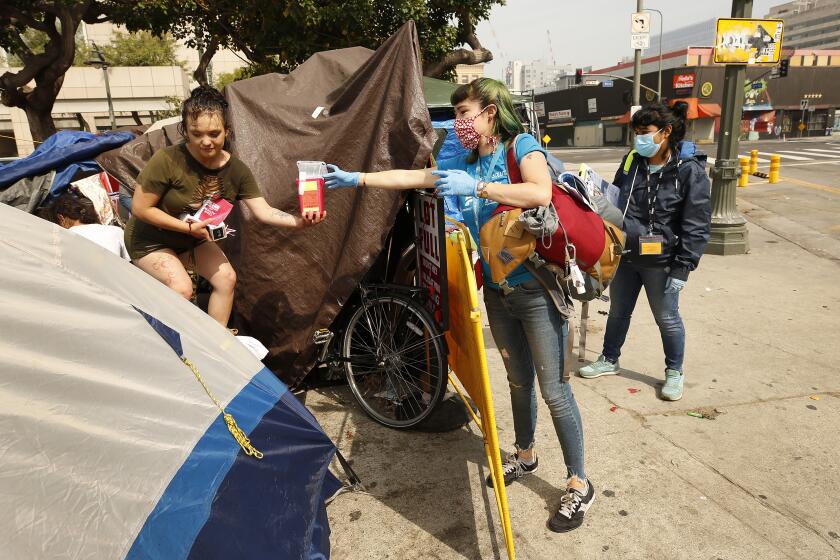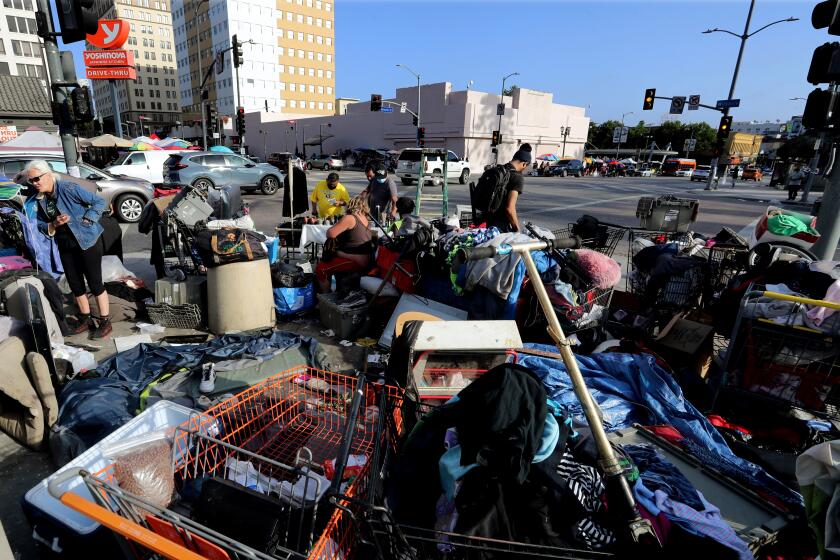L.A. finalizes its anti-camping law, setting the stage for vote-by-vote enforcement
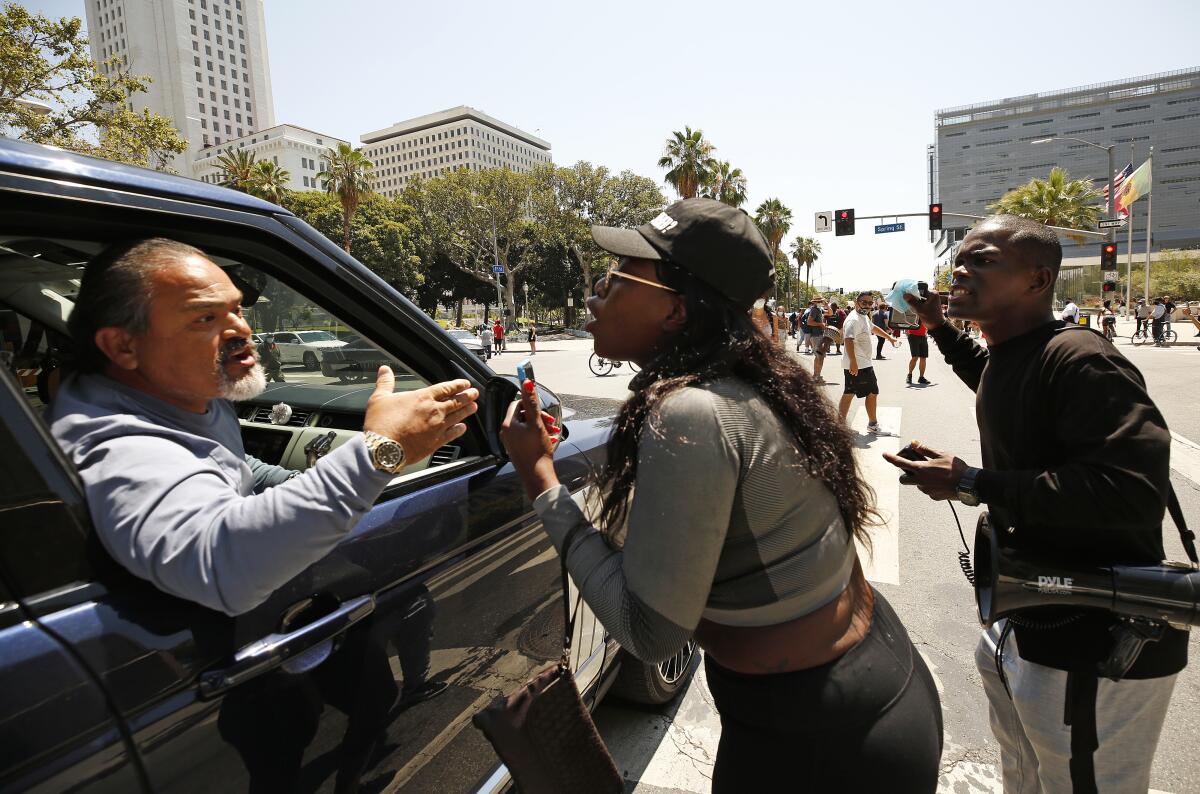
- Share via
The Los Angeles City Council gave final approval on Wednesday to an ordinance outlawing camping around parks, libraries and other facilities, over objections from critics who said it would punish people for living on the streets.
The measure, approved on a 13-2 vote, had been billed as a more humane way to clear the city’s sidewalks, alleys and open spaces, with outreach teams offering shelter and services before any enforcement takes place.
The ordinance now heads to Mayor Eric Garcetti, who plans to sign it. Whether the law will be heavily enforced, and how long it will take for the city to make substantive progress, is far from clear.
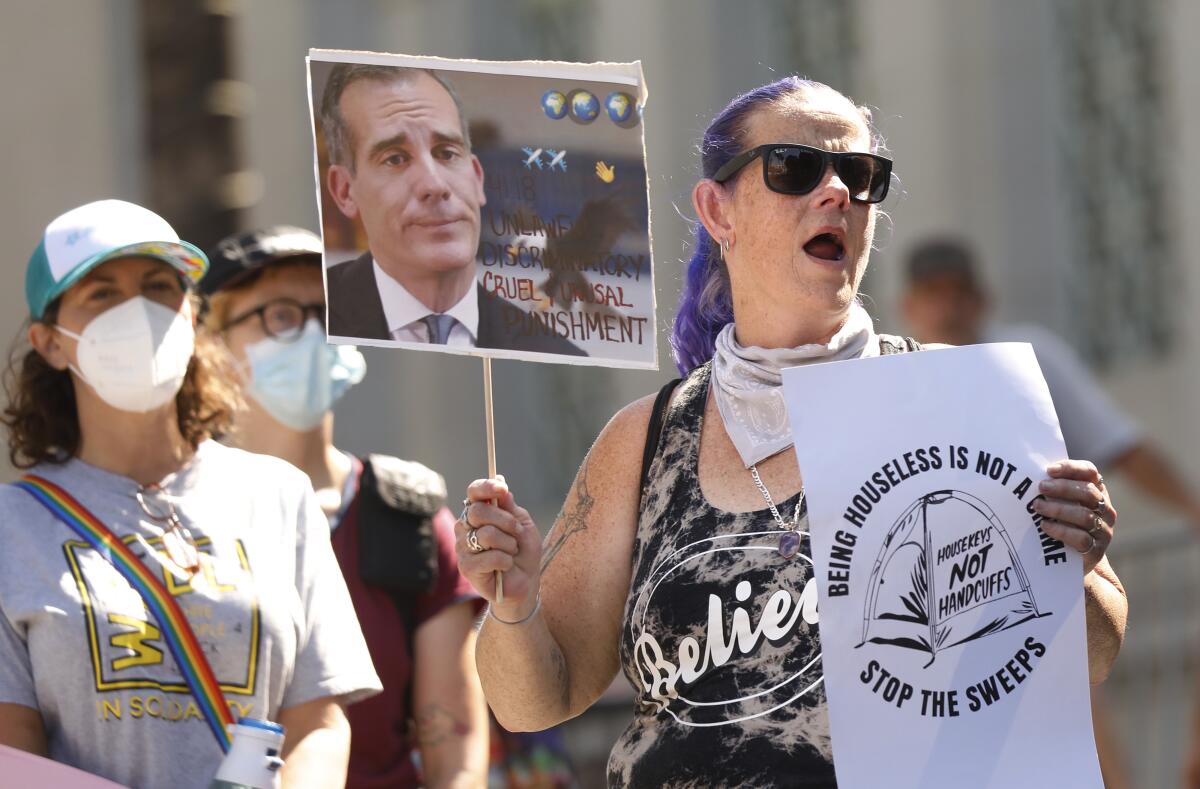
The ordinance prohibits sitting, sleeping or storing items on public property near libraries, parks, day-care centers, schools and other locations. But it also states that enforcement in such places cannot occur until the City Council has reviewed a location and voted to give the go-ahead.
Under the proposed ordinance, enforcement of anti-camping laws cannot take place until the City Council has reviewed the location and given the go-ahead.
That language raises the prospect that the council will have to vote encampment by encampment to enforce large portions of its anti-camping law, critics say.
Council members have promised that any enforcement would be accompanied by the arrival of “street engagement teams” — social workers, mental health specialists and others who would offer the unhoused shelter and services.
The city’s policy analysts have proposed assigning 17 outreach teams from the Los Angeles Homeless Services Authority to handle that work. Those teams would head out to an area before the City Council votes to prohibit camping in a particular location, according to a report released Wednesday.
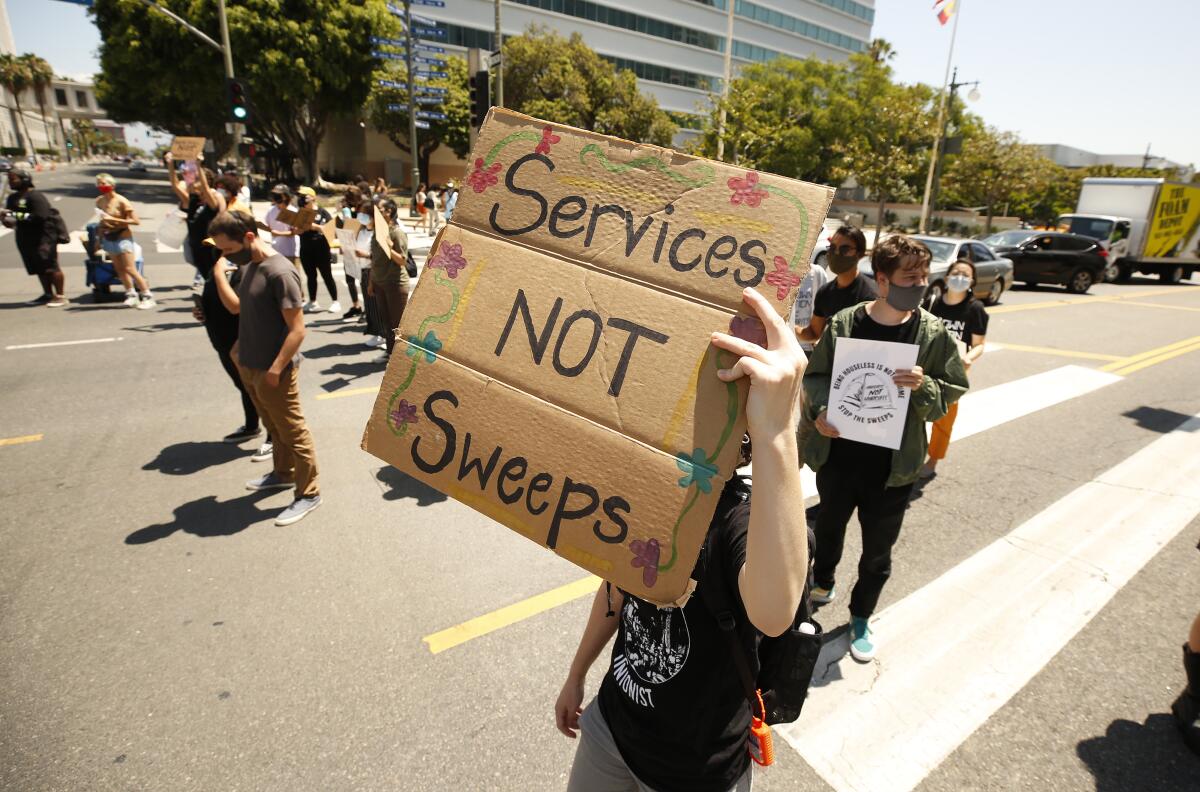
Once an area is cleared, outreach workers would return over a period of three months to see if homeless people return. If they have, additional outreach would be conducted to “promote voluntary compliance.”
Under that outreach process, it could take up to four months to relocate people and clear an encampment, City Administrative Officer Matt Szabo said in his report.
Councilman Mark Ridley-Thomas, who helped the draft the ordinance, called that timeline realistic, saying even that extended period of time would be greeted as good news by people who have spent years on the streets.
“None of this is going to happen overnight,” he said. “The good news is that it is going to happen.”
Homeless advocates have nevertheless voiced alarm over the proposal, saying there is not enough shelter space to serve the city’s unhoused population, which exceeded 41,000 during the city’s last official count. Councilman Mike Bonin, who voted against the anti-camping law, said the city needs a right to housing, not a mandate that forces people into shelters.
“People want housing,” he said. “They do not want warehousing. They don’t want shelter. They want housing.”
Councilwoman Nithya Raman, who represents neighborhoods stretching from Sherman Oaks to Silver Lake, cast the other opposing vote.
The debate over the city’s approach to homelessness comes as council members are increasingly focused on next year’s election. Some are running for reelection, while others are seeking higher office. At the same time, business leaders and neighborhood groups have become increasingly vocal in their demand for a reduction in encampments.
Mark Brady, who manages the Barnsdall Square Shopping Plaza in Hollywood, told council members that he drew a link between the homeless encampment that runs along the sidewalk on Vermont Avenue and attacks that have occurred on the shopping center’s employees.
“Customers have expressed to me and to the managers of the stores that they do not feel safe going to the stores,” he said. “These small businesses are being killed. They’re hanging on by dear life.”
Councilman Joe Buscaino, who is running for mayor, said the ordinance would ensure that sidewalks are passable, driveways are clear and doorways are accessible. But he also argued that the city should have gone further.
“We must still pass a law that says you cannot camp on the sidewalk if you have been offered housing,” he said in a statement.
California will spend a record $4.8 billion over two years to alleviate homelessness after legislators passed key details of a new state budget. Here’s how the money will be spent.
The council’s differing perspectives have caused some to fear that enforcement will vary sharply from district to district, depending on a council member’s views.
Still, not every location listed in the ordinance would require a council vote. Under the ordinance, city crews would still be permitted to enforce provisions barring people from sitting, sleeping or storing property within two feet of a fire hydrant, five feet of a doorway or 10 feet of a driveway.
Under the ordinance, those who violate those rules could receive citations.
Renay Rodriguez, a Chatsworth-based bankruptcy lawyer who provides pro bono services to homeless people, told council members the ordinance would only make it more difficult for homeless people to get back on their feet.
“You are going to end up levying fines against the very people who have the least ability to pay,” she said, adding, “You are going to kick them, and you’re going to make sure you put your knee on their neck.“
More to Read
Sign up for Essential California
The most important California stories and recommendations in your inbox every morning.
You may occasionally receive promotional content from the Los Angeles Times.
